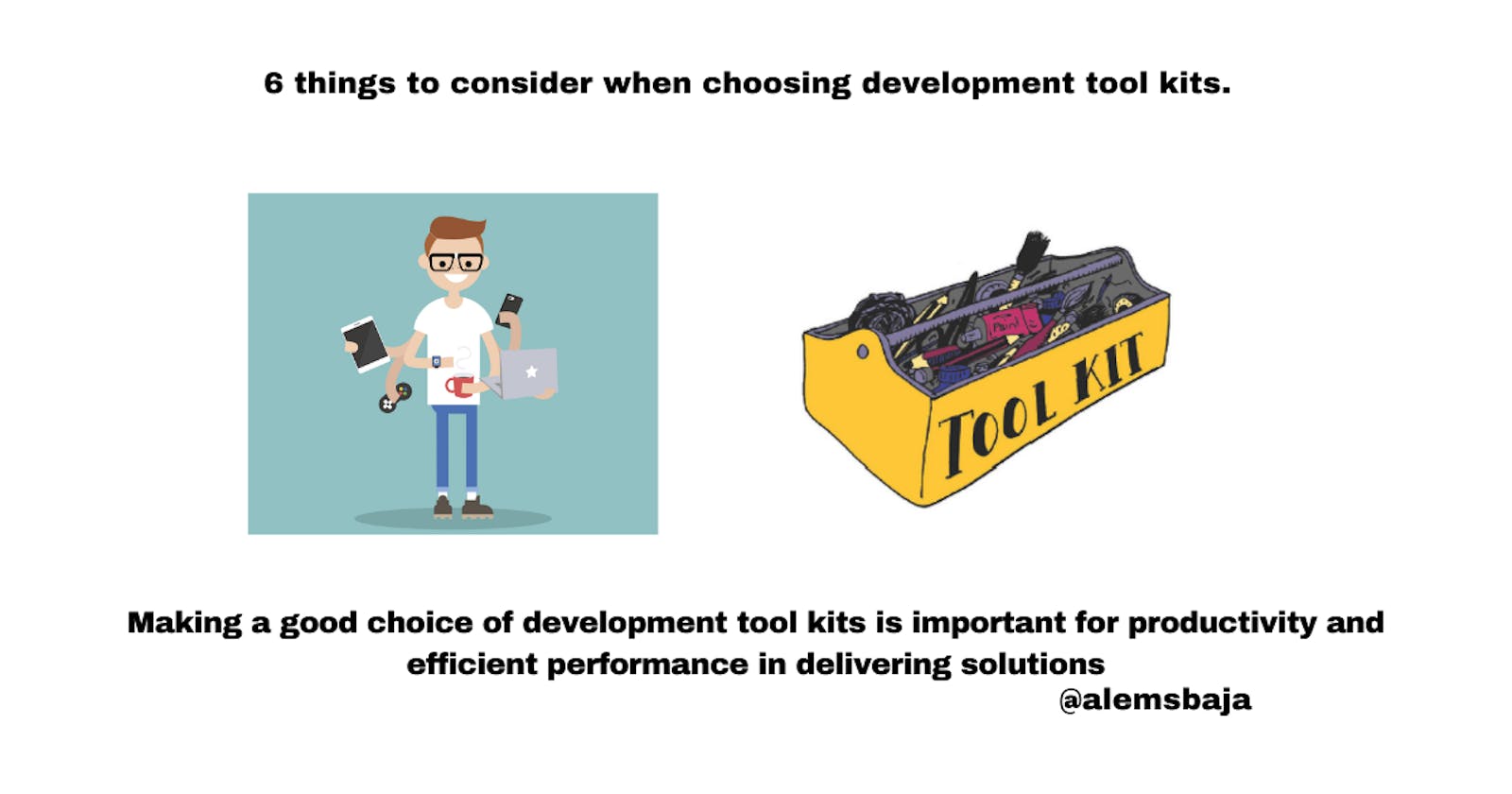6 things to consider when choosing development tool kits.
Making a good choice of development tool kits is important for productivity and efficient performance in delivering solutions
With thousands of development tools for developers, designers etc flooding the market, you need to put certain things into consideration when choosing one for your product development.
Here are the key factors to consider before selecting your developer/designer tool kit.
Usefulness
If it answers the question "How does this tool fit into achieving the objective of this product?" then it's useful. Don’t pick tools just for the sake of it; make sure the available resources align with your needs and solve a specific problem. Always focus on the final product rather than “cool stuff” to play around with. If you want to build an app for multiple platforms, you can work with a cross-platform development framework that solves this issue.
Internal standards
When working in a team as a developer, you must abide by the internal standards to ensure consistency. Before deciding on the technology stack for any development initiative, go through previous documentation to familiarize yourself with company standards.
Team experience
Internal standards often conflict with the available talent pool. In this situation, you need to cut your cloak according to the team members’ expertise. If you choose a framework that no developer understands, you’ll end up disrupting the development process. Instead of devoting time and effort to the project, developers will spend time figuring out how the framework functions.
Applicability
Keep the tool selection relevant and consistent with the project requirements. This factors in usability in the sense that you only need to choose tools that apply to the development environment. If you are building an application for Windows, you don’t need to get a Linux system.
Compatibility
This factor is relevant for frameworks that rely on diverse tooling options to build one product. Some tools might perform well individually, but when you integrate them or try to make them work together, they will produce numerous bugs. To avoid this problem, only work with compatible systems.
Cost
Some tools are free (open source), while others will are based on subscription fees to use or access more of their features and functionalities. Before choosing a development tool, framework or IDE, review the pricing plan if it has any and make sure your budget can accommodate the billing moving forward.
"Once you have considered these factors, it's time to choose what fits best to you personally or as a team. You can also check out the new full guide "Top tools every developer should have in their software collection" and keep in mind that development tools go hand in hand with QA automation testing tools that gradually take over the market.
Thank you for reading this article!!!.
Please kindly share with your network and feel free to use the comment section for questions, answers, and contributions.
